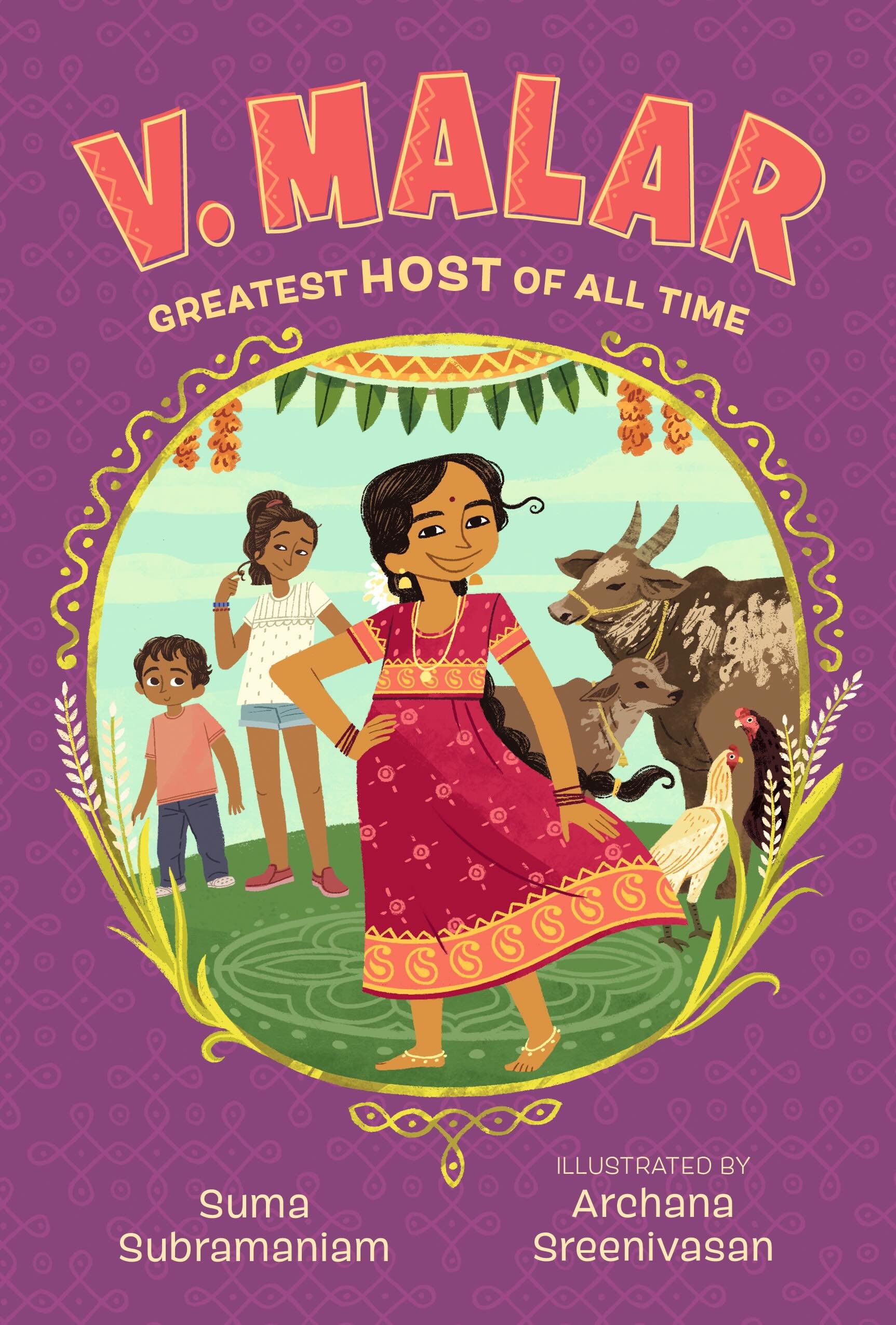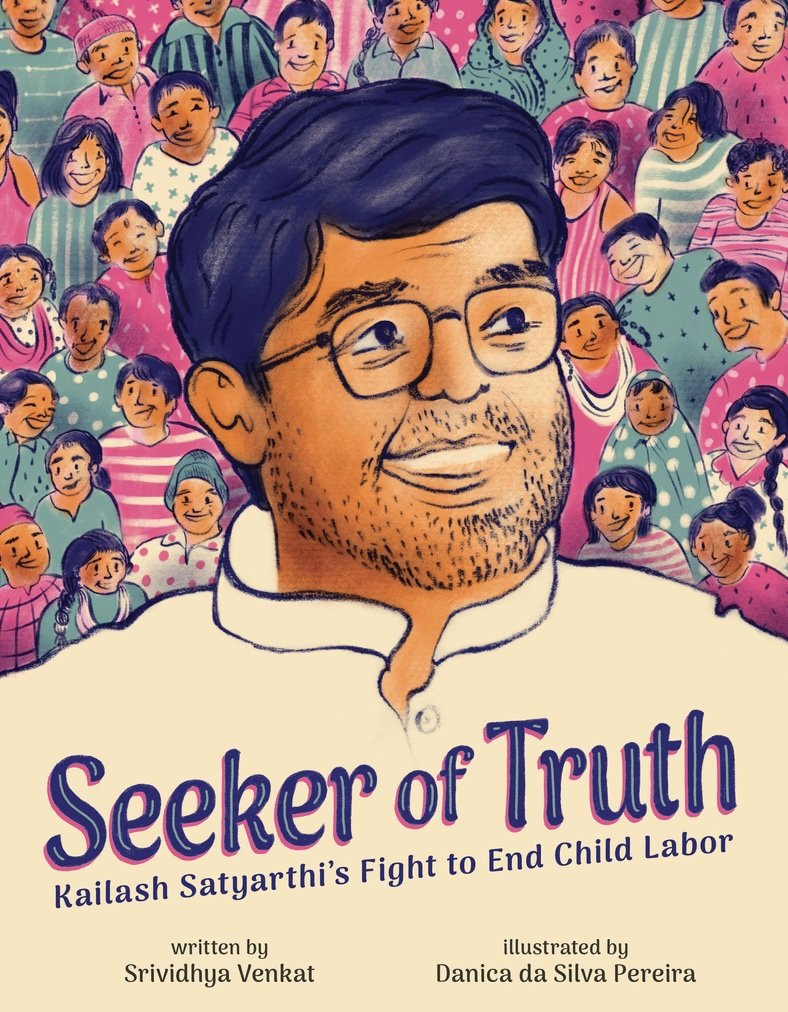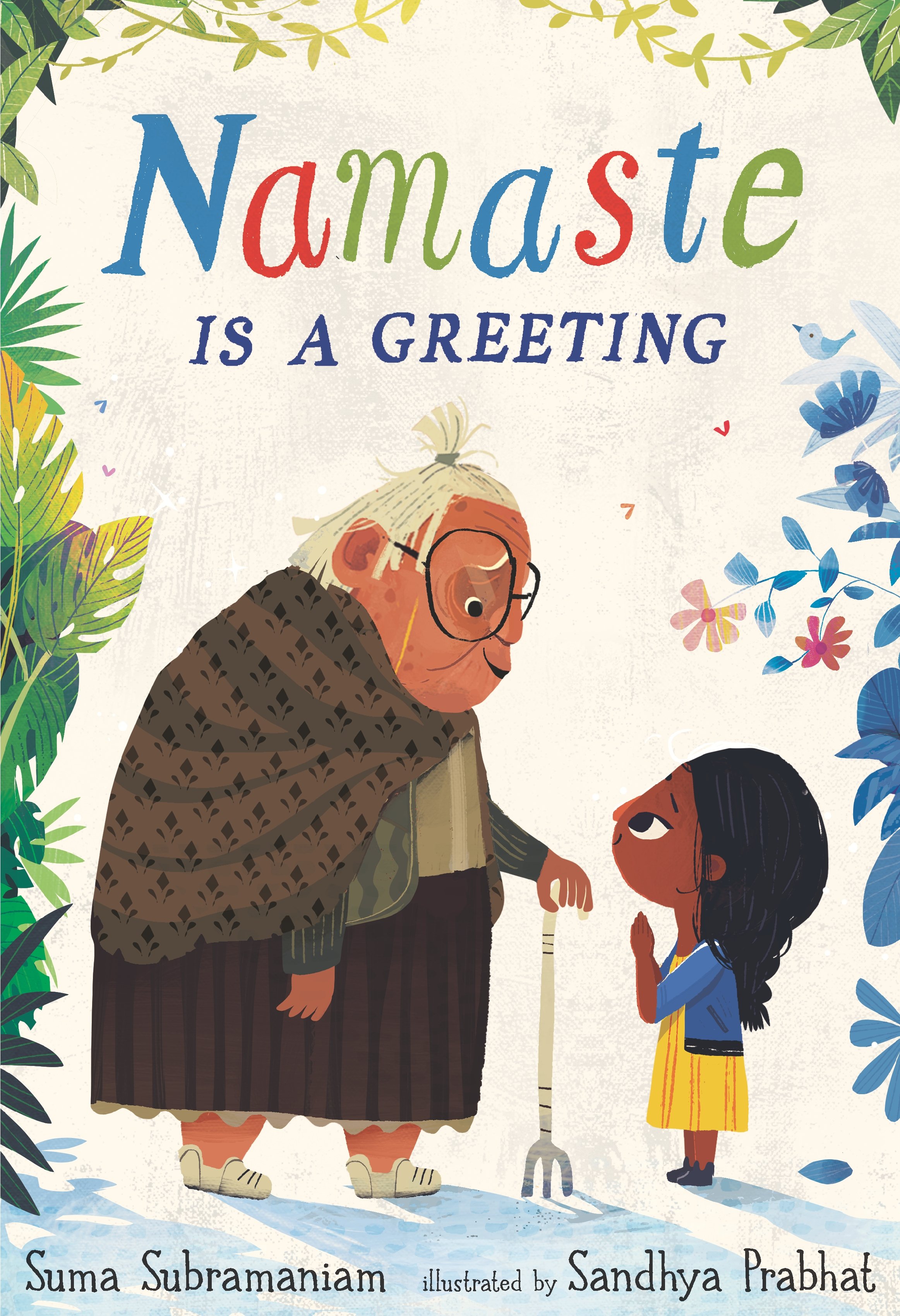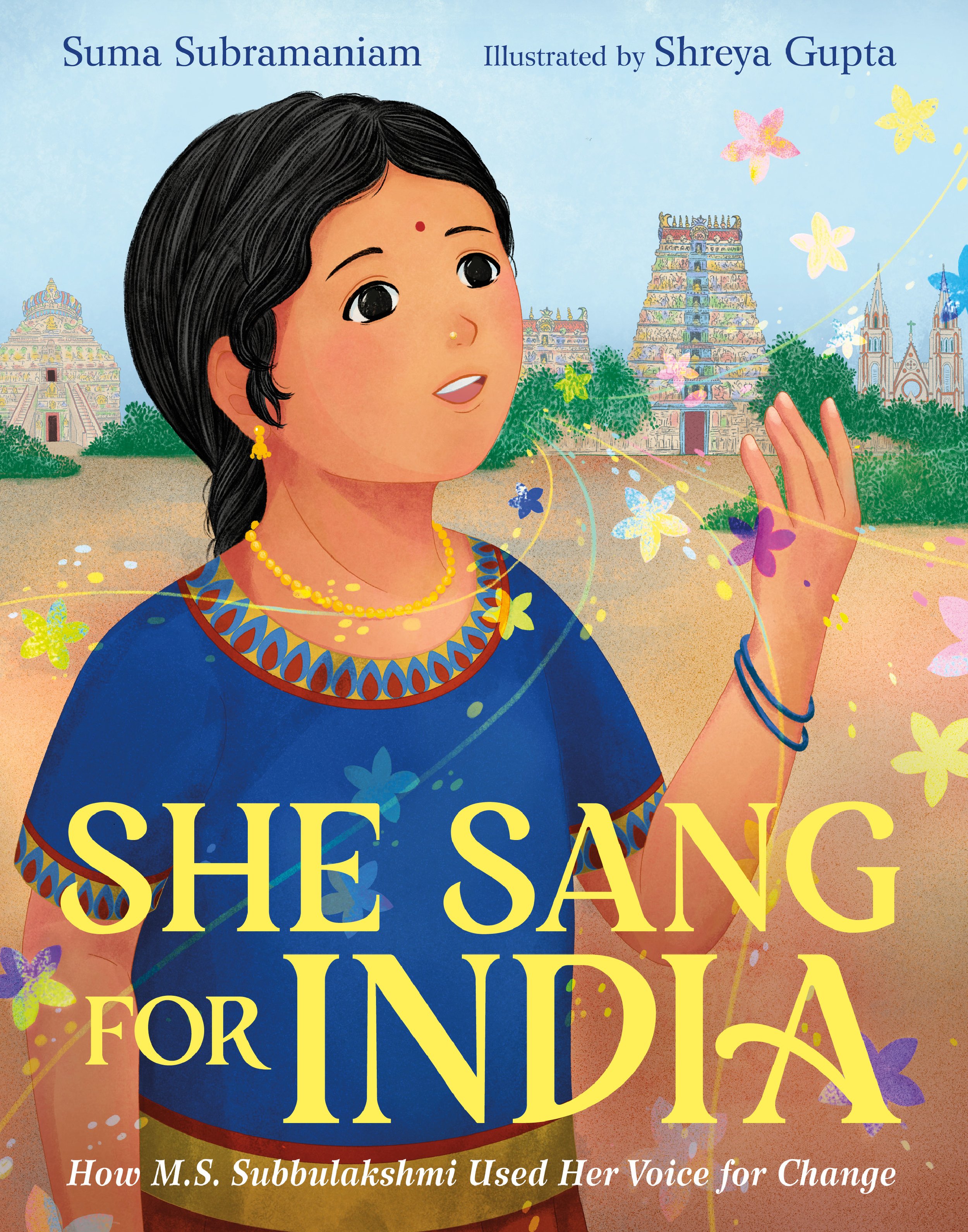Writing With a Broken Tusk
Writing With a Broken Tusk began in 2006 as a blog about overlapping geographies, personal and real-world, and writing books for children. The blog name refers to the mythical pact made between the poet Vyaasa and the Hindu elephant headed god Ganesha who was his scribe during the composition of the Mahabharata. It also refers to my second published book, edited by the generous and brilliant Diantha Thorpe of Linnet Books/The Shoe String Press, published in 1996, acquired and republished by August House and still miraculously in print.
Since March 2024, Jen Breach (writer, VCFA graduate, and former student) has helped me manage guest posts and Process Talk pieces on this blog. They have lined up and conducted author/illustrator interviews and invited and coordinated guest posts. That support has helped me get through weeks when I’ve been in edit-copyedit-proofing mode, and it’s also introduced me to writers and books I might not have found otherwise. Our overlapping interests have led to posts for which I might not have had the time or attention-span. It’s the beauty of shared circles.

Process Talk: Mitali Perkins on The Golden Necklace
Mitali Perkins has been my fellow traveler on the long road of writing books for young readers with the specific aim of crossing cultural and geographical boundaries. In 2017, her novel, You Bring the Distant Near, was a National Book Award nominee. Her Rickshaw Girl won the Jane Addams Book Award. And I can think back to years ago, when I came across her first novel, The Sunita Experiment. It gave me courage to write the stories that were nagging at me.
Now, Mitali’s upper elementary novel, The Golden Necklace: A Darjeeling Tea Mystery, like my Book Uncle trilogy, has been published in the US and in India (the Indian title is Trouble in the Tea Gardens). I’m delighted to welcome Mitali to Writing With a Broken Tusk.

Process Talk with Jen: Suma Subramaniam on V. Malar: Greatest Host of All Time
[Posted by Jen Breach for Writing With a Broken Tusk]
Suma Subramaniam’s V. Malar: Greatest Host of All Time is a glorious celebration of Southern Indian culture, diaspora, and family, all told in a personal, intimate story between a young Indian girl and the American-raised cousin she is meeting for the first time. The layers are nuanced and stunningly brought to life.

Process Talk: Tina Athaide on Wings to Soar
I love it when histories usually considered obscure find expression in fiction for young readers. I’m doubly delighted to see verse added to the mix in Wings to Soar, from my colleague, friend, and former student, Tina Athaide.
Young Viva’s family is from Goa, embodying the syncretic cultural, linguistic, and religious traditions of that previously Portuguese colony in western India. They’ve made their home in Uganda but in 1972, they are expelled from there by dictator Idi Amin, and sent to a resettlement camp in England. Not all of them make the trip. Viva’s father was supposed to meet them in London, but he never shows up.
Here’s my conversation with Tina Athaide.

Guest Post: Is Writing a Picture Book Really That Hard? by Veera Hiranandani
Veera Hiranandani writes heartbreaking, devastating, tear-spilling, and, yes, hopeful historical and contemporary novels for young readers about nuanced characters whose identities and experiences figuratively, literally, and literarily cross borders. She’s really really good at it. Her middle grade novel, The Night Diary, won a Newbery Honor. Her most recent releases are Amil and the After, the historical middle grade sequel which continues The Night Diary’s story in post-partition India; and The Greatest, a tender picture book about intergenerational family love, illustrated by Vesper Stamper (released on September 3).
For novelists, the process of writing a picture book can present its own challenges. Here are Veera’s reflections on tackling the “concentrated feel” of a picture book.

Guest Post: Srividhya Venkat on Seeker of Truth
Kailash Satyarthi’s campaigns against child labor and advocacy for the universal right to education earned him the Nobel Peace Prize in 2014, when he was co-recipient along with Malala Yusufzai.
I was delighted to hear of Srividhya Venkat’s picture book biography, Seeker of Truth: Kailash Satyarthi’s Fight to End Child Labor. Her publisher sent me an e-galley of the book, and I ended up writing a jacket blurb—not something I agree to do that often!
Here’s Srividhya on how she overcame her own doubts and questions and decided this was a book she needed to write:

Guest Post: Suma Subramaniam on Picture Books Rooted in Culture and Geography
Suma Subramaniam has not one but two picture books celebrating Indian culture releasing in May. A Bindi Can Be…, illustrated by Kamala Nair, released on May 2 and My Name is as Long as a River, illustrated by Tara Anand, comes out on May 28. In a recent cover reveal interview for My Name is as Long as a River, Suma said “A name when pronounced correctly is a comforting feeling to everyone involved. That is what we all need—a little comfort.” That thread of seeking and enjoying comfort connects both of these books.

Guest Post: Suma Subramaniam on Namaste is a Greeting
Honoring the Good by Suma Subramaniam
The objective of Namaste is a Greeting is to understand the meaning of the word “Namaste” and the value it can bring when it’s spoken verbally and expressed non-verbally. Namaste in Sanskrit is a combination of two words—namah, meaning “bow,” and te, meaning “to you.” Therefore, namaste is a greeting that means “I bow to you.”

Guest post: Suma Subramaniam on She Sang for India
From Suma Subramaniam: When I started writing about M.S. Subbulakshmi, I had it in my head that this wasn’t going to be an arduous task. Her story was all over the internet. It wouldn’t take much effort because she was famous, well-respected, and well-known among people from India and the diaspora.
By the time I finished the draft, I learned how fallible I was. Every book presents its challenges, and this project wasn’t short of that.

Guest Post: Sathya Achia on In My Hands
Sathya Achia weaves the complexity of gods and demons and magic with the life of 16-year-old Chandra, who’s confronted with rising danger from a supernatural enemy that threatens everyone she loves. Achia’s cultural backdrop is particularly interesting because it’s very specific, drawn from the author’s own ancestral Kodava culture (related to a specific ethnolinguistic group of southern India).
“Selavu is not so much of a weapon as it is a shield. Same with those cuffs they are part of traditional Kodaguru warrior armor,” Gowramma says, forcing me to think, but I can’t because my head is throbbing, and my thoughts are foggy. “Learn to look deeper. Nothing is ever as it seems.”
— In My Hands by Sathya Achia
In this fast-paced tale of curses and battles, but also of family and community and one girl’s struggle to meet her destiny, nothing is as it seems. I’m delighted to welcome Sathya Achia to tell us more about her novel, from Ravens & Roses.

The Words in Picture Books: Lali’s Feather by Farhana Zia
Even in 2022, it’s rare to find a truly playful picture book that is also grounded in a particular location and with a specific cultural setting. In Lali’s Feather by Farhana Zia, you will not find the staple fare of diversity in picture books—food, family traditions, festivals.

Process Talk: Padma Venkatraman on Born Behind Bars
I’ve been meaning to talk to Padma Venkatraman for a long time. Padma is the multi-talented author of books like The Bridge Home, A Time to Dance, and Island’s End, and a former oceanographer who brings the richness of her life experience to her work.
This lightly edited transcript is drawn from our conversation.

